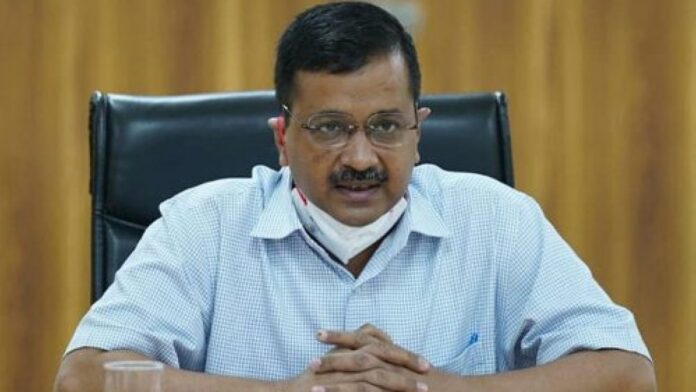The Supreme Court on Friday stayed the proceedings against Delhi Chief Minister Arvind Kejriwal in a case registered against him for allegedly making objectionable remarks against the BJP and Congress in Uttar Pradesh during the 2014 general elections.
Kejriwal has moved the apex court against an order of the Lucknow bench of the Allahabad High Court which had last month declined to discharge him in the criminal case pending before a trial court at Sultanpur.
In the FIR, Kejriwal has been accused of an offence under section 125 of the Representation of the People (RP) Act, 1951, which pertains to promoting enmity between classes in connection with elections.
His plea came up for hearing before a bench of Justices K M Joseph and B V Nagarathna.
The bench, which issued notice to the state of Uttar Pradesh on the plea, also stayed further proceedings in the matter till the next date of hearing.
The top court said the plea would come up for hearing after five weeks.
Kejriwal had allegedly said, “Joh Congress ko vote dega, mera maanna hoga, desh ke saath gaddari hogi . Joh Bhajapa ko vote dega use Khuda bhi maaf nahin karega . ” (Those who vote for the Congress will be betraying the nation, and even God will not forgive those who vote for the BJP).
In his plea filed in the apex court through advocate Vivek Jain, Kejriwal has said the petition raises some important questions of law, including whether a case under section 125 of the 1951 Act can be made out without there being any video clip or full transcript of the alleged speech made by the accused.
“Whether merely mentioning of name of God, can amount to promoting enmity and hatred between different classes of citizens?” said one of the questions of law raised in the plea.
During the hearing on Friday, senior advocate A M Singhvi, appearing for Kejriwal, said the case was filed on a complaint by a police officer and there was no private complainant.
“Why are you bringing God? In a secular country, leave God alone. God can take care of itself. God does not need anyone’s protection,” the bench observed.
The bench also inquired whether Kejriwal was holding the office of the Delhi chief minister when he made the statements.
Singhvi said Kejriwal was not the chief minister at that time.
The bench observed when certain words are used, they may not be unintentional.
“Politicians will have to be very careful .,” the apex court observed.
Singhvi said citizens in India have a cherished free speech right and there are no evidence or allegations of any law and order problem or communal disharmony of any manner after these purported remarks.
“Your lordships may stay the proceedings. I am now the chief minister and I will be called to UP every time . the whole object is to harass me,” he said.
The plea said it has been alleged that during an election campaign on May 2, 2014 for the Lok Sabha polls, Kejriwal, while delivering a speech, had uttered some sentences which amount to commission of offence under section 125 of the Act.
The plea said two days after the alleged utterances by the AAP leader, on May 4, 2014 a complaint was filed in the matter.
“Though the said belated complaint alleged violation of only the Model Code of Conduct, however, the police instead registered the FIR on the very same day under section 125 RP Act. This was done without any independent inquiry by the police. This clearly shows the biasness and the action taken post-haste by the police,” it said.
The plea said it is the petitioner’s case that there is no proof or evidence that he had in fact made such alleged utterance and hence, the very basic foundational evidence to prosecute him is absent in the matter.
It further said, “Merely mentioning of God (Khuda) cannot amount to promoting enmity and hatred between different classes of citizens”.
“Alleged utterance by the petitioner does not refer to any particular caste or religion and hence, by no stretch of imagination such an alleged utterance can promote feeling of enmity or hatred amongst different classes of citizens,” it said.
The plea said Kejriwal had not referred to any religion or caste but only a political party and a political party cannot be considered as a “class of citizens” for the purposes of section 125 of the Act.




